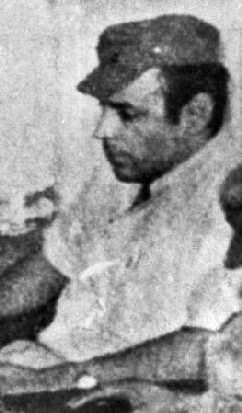
Sabri Khalil al-Banna, known by his nom de guerreAbu Nidal, was the founder of Fatah: The Revolutionary Council, a militant Palestinian splinter group more commonly known as the Abu Nidal Organization (ANO). At the height of its militancy in the 1970s and 1980s, the ANO was widely regarded as the most ruthless of the Palestinian groups.
The Taif Agreement, officially known as the National Reconciliation Accord, was reached to provide "the basis for the ending of the civil war and the return to political normalcy in Lebanon". Negotiated in Taif, Saudi Arabia, it was designed to end the decades-long Lebanese Civil War, reassert Lebanese government authority in southern Lebanon, which was controlled at the time by the Christian-separatist South Lebanon Army under the occupational hegemony of Israel. Though the agreement set a time frame for withdrawal of Syrian military forces from Lebanon, stipulating that the Syrian occupation end within two years, Syria did not withdraw its forces from the country until 2005. It was signed on 22 October 1989 and ratified by the Lebanese parliament on 5 November 1989.

Al-Ashraf Salāh ad-Dīn Khalil ibn Qalawūn was the eighth Bahri Mamluk sultan, succeeding his father Qalawun. He served from 12 November 1290 until his assassination in December 1293. He was well known for conquering the last of the Crusader states in Palestine after the siege of Acre in 1291. While walking with a friend, Khalil was attacked and assassinated by Baydara and his followers, who was then killed under the orders of Kitbugha.
Dory Chamoun is a Lebanese politician who led the National Liberal Party (NLP) from 25 May 1991 till 10 April 2021 when he was succeeded by his son Camille Dory Chamoun who became a MP in the 2022 Lebanese general election. He is also a prominent member of the Qornet Shehwan Gathering, a coalition of politicians, academics, and businessmen who oppose the pro-Syrian March 8 Alliance and Syrian influence in Lebanon. He is the eldest son of late Lebanese president Camille Chamoun and brother of Dany Chamoun.

Saad El-Din Rafik Al-Hariri is a Lebanese-Saudi politician who served as the prime minister of Lebanon from 2009 to 2011 and 2016 to 2020. The son of Rafic Hariri, he founded and has been leading the Future Movement party since 2007. He is seen as "the strongest figurehead" of the March 14 Alliance.

Fatah al-Intifada is a Palestinian militant faction founded by Col. Said al-Muragha, better known as Abu Musa. The group is often referred to as the Abu Musa Faction. Officially it refers to itself as the Palestinian National Liberation Movement - "Fatah", the identical name of the major Fatah movement. Fatah al-Intifada is not part of the Palestine Liberation Organization (PLO).
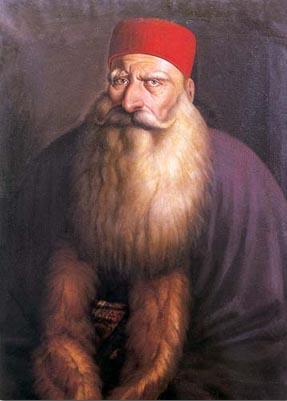
Emir Bashir Shihab II was a Lebanese emir who ruled the Emirate of Mount Lebanon in the first half of the 19th century. Born to a branch of the Shihab family which had converted from Sunni Islam, the religion of previous Shihabi Emirs, he was the only Maronite ruler of the Mount Lebanon Emirate.
Al Akhbar is a daily Arabic language newspaper published in a semi tabloid format in Beirut. The newspaper's writers have included Ibrahim Al Amine, As'ad AbuKhalil, Amal Saad-Ghorayeb, Sharmine Narwani, Pierre Abi Saab, and Amer Mohsen. Until 2015, it also had an English version published on the Internet.

The Popular Nasserist Organization – PNO or Organisation Populaire Nassérienne (OPN) in French, is a Sidon-based Nasserist party originally formed in 1973 by Maarouf Saad, a Sunni Muslim pan-Arab politician and member of Parliament (MP) later killed by the Lebanese Army during a February 1975 dock strike held in that port city.
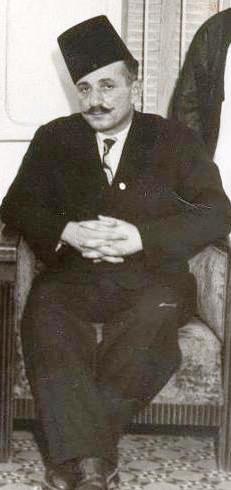
Ahmad El-Assaad or Ahmad Al-As'ad was Speaker of the Lebanese Parliament from 5 June 1951, till 30 May 1953.
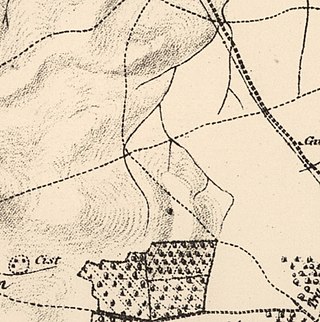
Abu al-Fadl was a Palestinian village in the Ramle Subdistrict, about 4 km (2.5 mi) northwest of Ramla in, what was until 1948, Mandatory Palestine. The village was also known as al-Satariyya. In 1945/44, the village had a population of 510.

Ammatour is a town and municipality in the Shouf (Al-Shouf) District in Mount Lebanon Governorate of Lebanon. It lies 57 km southeast of Beirut, at an elevation of between 800 and 1,050 meters above sea level. The name "Ammatour" is derived from the words 'Ain Maa Tour', meaning the spring of the mountain. Ammatour is one of Lebanon's richest villages in sources of water with more than 365 springs, fountains, and a river located within its jurisdiction.
General elections were held in Lebanon between 9 and 23 June 1957. Independent candidates won the majority of seats. Voter turnout was 53.2%.
General elections were held in Lebanon between 24 March and 7 April 1968. Independent candidates won the majority of seats, although many of them were considered to be members of various blocs. Voter turnout was 49.6%. Politically the election was a confrontation between the mainly christian Tripartite Alliance and Chehabists candidates.

Mehdi Salim Khalil is a professional footballer who plays as a goalkeeper for Lebanese Premier League club Ahed and the Lebanon national team. Khalil is known as "the Mountain" because of his height.
The Za'im system, also known as zuama clientelism, is a corrupt patronage system in Lebanon. A political boss, known as a Za'im, is from a leading family in the country's electoral districts. They manipulate elections and distribute political favors and financial rewards to the highest bidder. A za'im can run for office or encourage votes for another to have another in his debt. Votes are often obtained through bribery or force. Individuals elected to parliament view their primary goal to serve the needs of their local clients, neglect any national issues and use parliament to further their regional-sectarian interests. The Za'im dressed in tailored European suits, which misled many visitors at the time. According to As'ad AbuKhalil, many Zuama became warlords during the Lebanese Civil War (1975–1990). He has also stated that they are often sponsored by foreign governments, through which foreign embassies play a role in making political decisions in Lebanon.
Events from the year 1947 in Jordan.

As'ad AbuKhalil is a Lebanese-American professor of political science at California State University, Stanislaus.
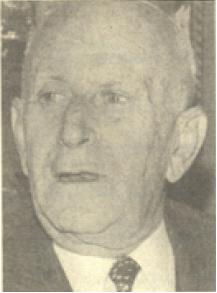
Kazem Ismail al-Khalil - commonly known as Kazem al-Khalil or Kazem el-Khalil, also transliterated Kazim from the Arabic - was a lawyer, doyen member of the Lebanese parliament, seven-time minister of the Lebanese government and right-wing militia-leader from a Shiite feudal dynasty in Southern Lebanon.
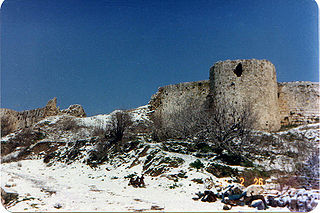
El-Assaad or Al As'ad is a feudal political family/clan originally from Najd and a main branch of the anza tribe. Unrelated to Syrian or Palestinian Al-Assads, El-Assaad dynasty that ruled most of South Lebanon for three centuries and whose lineage defended fellow denizens of history's Jabal Amel principality – today southern Lebanon – for 36 generations, Balqa in Jordan, Nablus in Palestine, and Homs in Syria governed by Ottoman rule between generations throughout the Arab caliphate by Sheikh al Mashayekh Nasif Al-Nassar ibn Al-Waeli, Ottoman conquest under Shbib Pasha El Assaad, Ali Bek El Assaad ruler of Belad Bechara, Ali Nassrat Bek. Advisor of the Court and a Superior in the Ministry of Foreign affairs in the Ottoman Empire, Moustafa Nassar Bek El Assaad Supreme Court President of Lebanon and colonial French administration by Hassib Bek—also supreme court Judge and grand speaker at halls across the Levant. El-Assaads are considered now "Bakaweit", and are considered princes or heirs to the family's dynasty to some.










